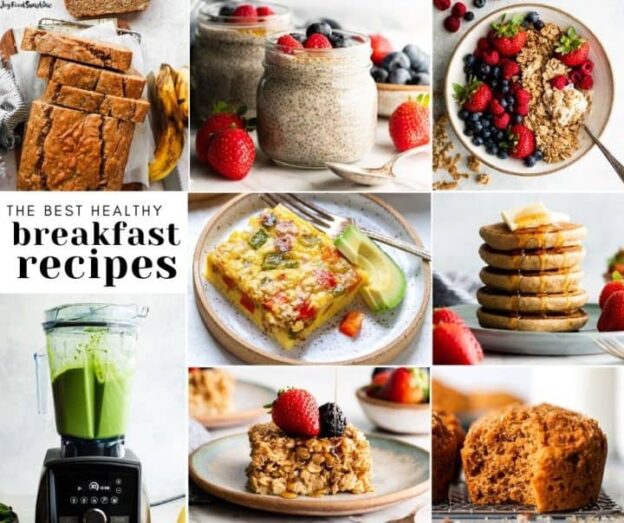Breakfast is the cornerstone of every successful day; it allows your body to recharge itself with fuel for the remainder of its journey through life. Breakfast helps replenish blood sugar (glucose) levels while providing energy needed for success throughout your day.
An ideal breakfast should include protein, carbohydrates and healthy fats as well as fruits and vegetables, with heart-healthy whole-grain options such as oatmeal or toast providing heart-protecting fiber and complex carbs for energy production.
Protein
Breakfast is the most essential meal of the day and many nutritionists advise eating protein during this mealtime for several reasons. Protein fills you up more effectively than carbohydrates and fat while helping boost metabolism by making you burn more calories digesting it.
Breakfast should include proteins like eggs, fish, seafood, meat, poultry and dairy products to reduce hunger and increase diet quality so you won’t end up snacking on
healthy food near me or less nutritive food all day long.
Protein has the power to significantly decrease hunger hormone ghrelin release while simultaneously increasing production of satiety hormones, helping you control appetite and ultimately aid weight loss by curbing it.
Fiber
Start your day right by starting it right with a high-fiber breakfast that can keep you feeling full for longer and reduce risk factors like heart disease, diabetes and certain forms of cancer.
Breakfast should include a wide range of whole grains, fruits and vegetables, legumes, nuts and seeds; low-fat dairy products should also be part of this breakfast. While certain of these foods may be better than others for starting off the day right, what’s most important is eating all these foods together for breakfast.
Insoluble fiber can be found in whole grain cereals, oats, bran, beans and certain fruits and vegetables. It provides several health benefits including maintaining gut health, improving insulin sensitivity and making your bowels move more smoothly to prevent constipation or bloating.
Consuming more insoluble fiber may help lower low-density lipoprotein (LDL), or “bad,” cholesterol levels, so it’s crucial that we consume at least five grams per serving when selecting or making our own cereal.
Carbohydrates
Carbohydrates (starches or sugars), provide energy to our bodies. They may be utilized immediately or stored as glycogen in liver and muscle cells for future use.
Plant foods contain these proteins, including grains, vegetables, fruits, legumes and nuts. You can enjoy eating them alone or combined with other foods for more variety in your diet.
Ideal ratio of carbs in daily caloric intake should range between 45-66% of total daily calories consumed; this could translate into between 225-325 grams of carbohydrates as part of daily caloric consumption.
Carbs provide energy to fuel our bodies and aid weight management, while also offering essential vitamins, minerals and antioxidants.
Sugar
Sugar is a class of sweet-tasting, soluble carbohydrates. Chemically speaking, its structure includes 12 carbon atoms, 22 hydrogen atoms and 11 oxygen atoms (C12H22O11).
Carbs form the basis of nutrition, making up most of our daily diets. These compounds come in three simple forms: glucose, fructose and galactose – each can be found as its own compound in our foods such as sucrose, lactose or maltose.
Sucrose or table sugar is the most well-known form of sugar, consisting of two linked sugar units connected with one another by disaccharides (two linked units of simple sugars such as glucose and fructose). Other forms include syrups derived from various combinations of these simple sugars such as glucose and fructose.
Sugar intake has been linked with higher risks of diabetes, heart disease and obesity – an increasing health burden that many are struggling with. To combat this risk, it is crucial that breakfast foods contain minimal amounts of both sugar and fat content.

